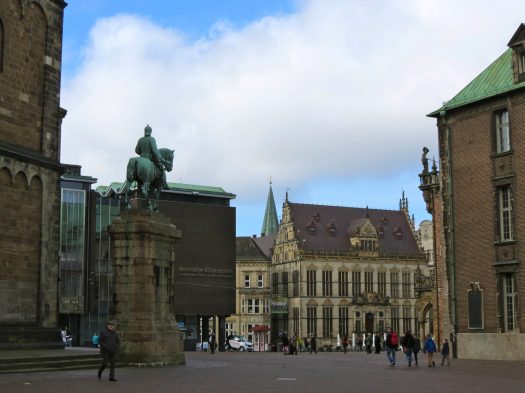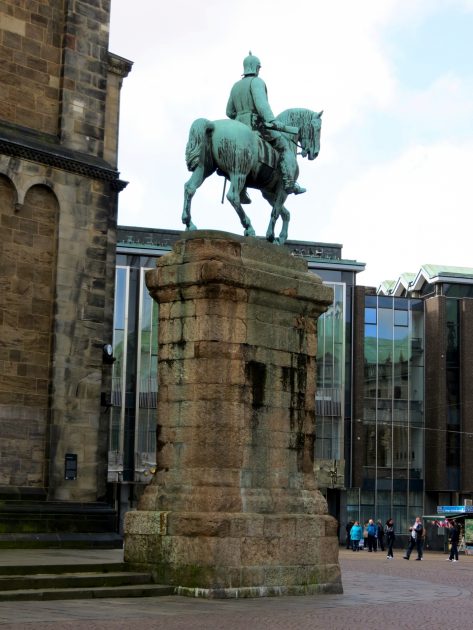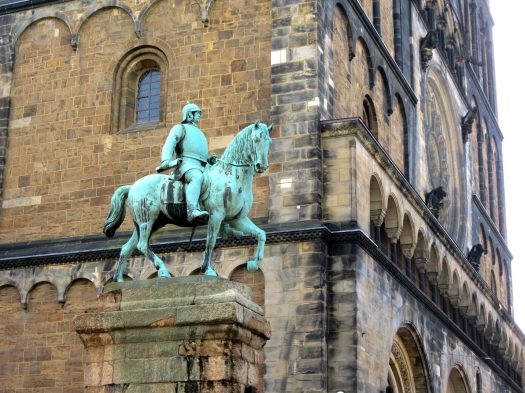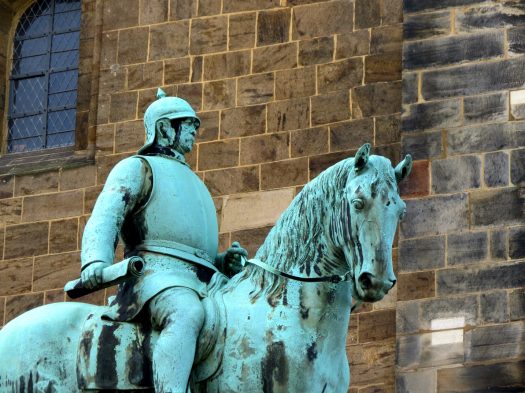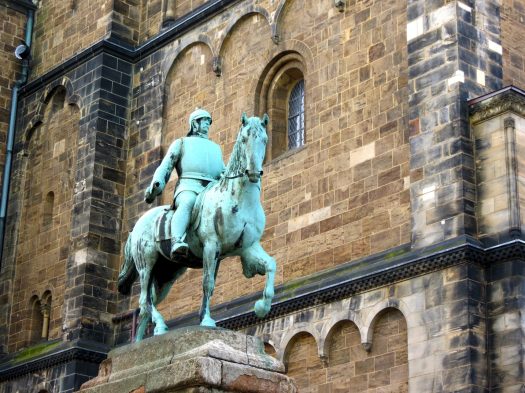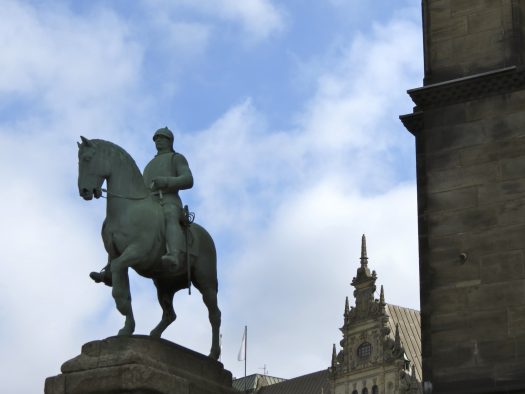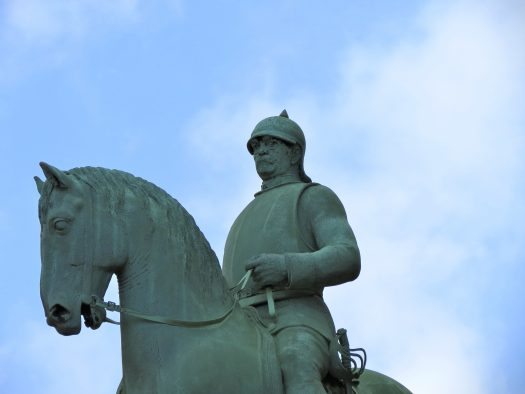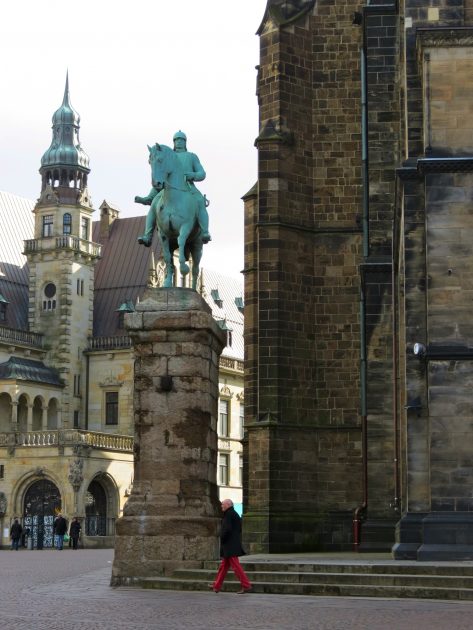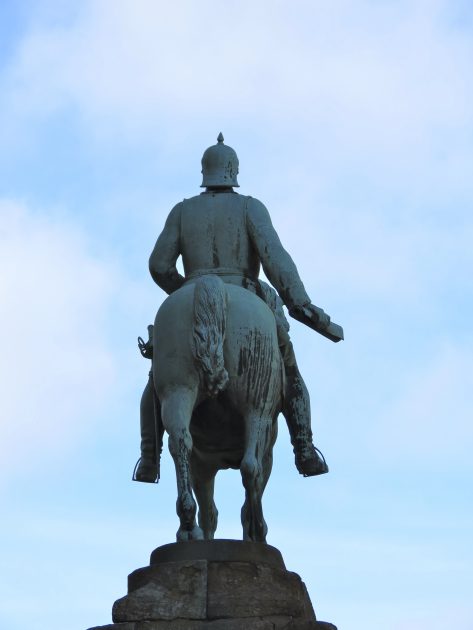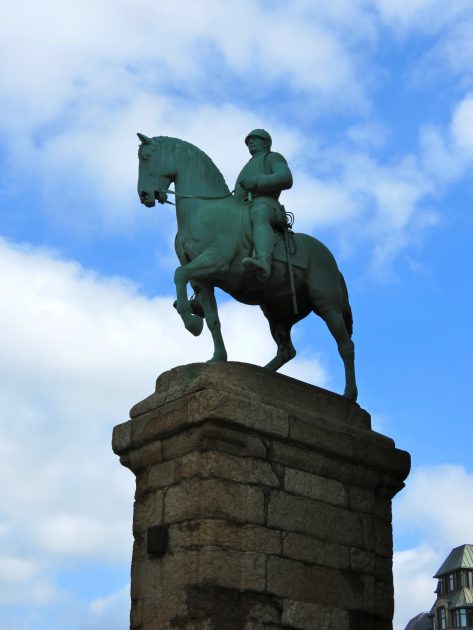- CountryGermany
- Town:Bremen
-
Year of creation:1910
- Rider(s):Bismarck, Otto von
(1815-1898) was a conservative German statesman who masterminded the unification of Germany in 1871 and served as its first chancellor until 1890, in which capacity he dominated European affairs for two decades. He had previously been Minister President of Prussia (1862–1890) and Chancellor of the North German Confederation (1867–1871). He provoked three short, decisive wars against Denmark, Austria, and France. Following the victory against Austria, he abolished the supranational German Confederation and instead formed the North German Confederation as the first German national state, aligning the smaller North German states behind Prussia. Receiving the support of the independent South German states in the Confederation’s defeat of France, he formed the German Empire (which excluded Austria) and united Germany.
With Prussian dominance accomplished by 1871, Bismarck skillfully used balance of power diplomacy to maintain Germany’s position in a peaceful Europe. However, his annexation of Alsace-Lorraine gave new fuel to French nationalism and Germanophobia. This helped set the stage for the First World War. Bismarck’s diplomacy of Realpolitik and powerful rule at home gained him the nickname the “Iron Chancellor”. German unification and its rapid economic growth was the foundation to his foreign policy. Disliking colonialism he reluctantly built an overseas empire when it was demanded by both elite and mass opinion.
A master of complex politics at home, Bismarck created the first welfare state in the modern world, with the goal of gaining working class support that might otherwise go to his Socialist enemies. A devout Lutheran, he was loyal to his king, Wilhelm I, who argued with Bismarck but in the end supported him against the advice of his wife and his heir. While Germany’s parliament was elected by universal male suffrage, it did not have much control of government policy. Bismarck distrusted democracy and ruled through a strong, well-trained bureaucracy with power in the hands of a traditional Junker elite that consisted of the landed nobility in eastern Prussia. He largely controlled domestic and foreign affairs, until he was removed by the young new headstrong Kaiser Wilhelm II. He retired to write his memoirs. - Sculptor(s):Hildebrand, Adolf von
(1847 –1921) was a German sculptor.
